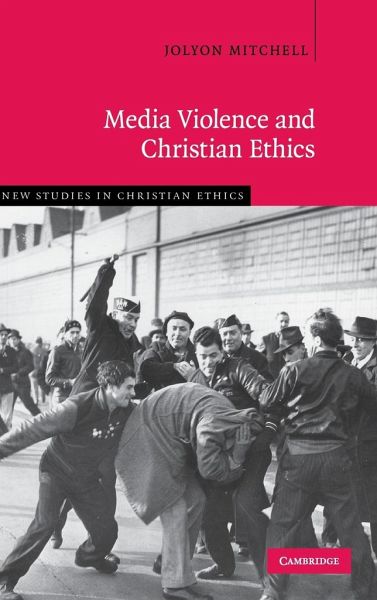
Media Violence and Christian Ethics

PAYBACK Punkte
42 °P sammeln!
How can audiences interact creatively, wisely and peaceably with the many different forms of violence found throughout today's media? Suicide attacks, graphic executions and the horrors of war appear in news reports, films, web-sites, and even on mobile phones. One approach towards media violence is to attempt to protect viewers; another is to criticize journalists, editors, film-makers and their stories. In this book Jolyon Mitchell highlights Christianity's ambiguous relationship with media violence. He goes beyond debates about the effects of watching mediated violence to examine how audien...
How can audiences interact creatively, wisely and peaceably with the many different forms of violence found throughout today's media? Suicide attacks, graphic executions and the horrors of war appear in news reports, films, web-sites, and even on mobile phones. One approach towards media violence is to attempt to protect viewers; another is to criticize journalists, editors, film-makers and their stories. In this book Jolyon Mitchell highlights Christianity's ambiguous relationship with media violence. He goes beyond debates about the effects of watching mediated violence to examine how audiences, producers and critics interact with news images, films, video-games and advertising. He argues that practices such as hospitality, friendship, witness and worship can provide the context where both spectacular and hidden violence can be remembered and reframed. This can help audiences to imagine how their own identities and communities can be based not upon violence, but upon a more lasting foundation of peace.














